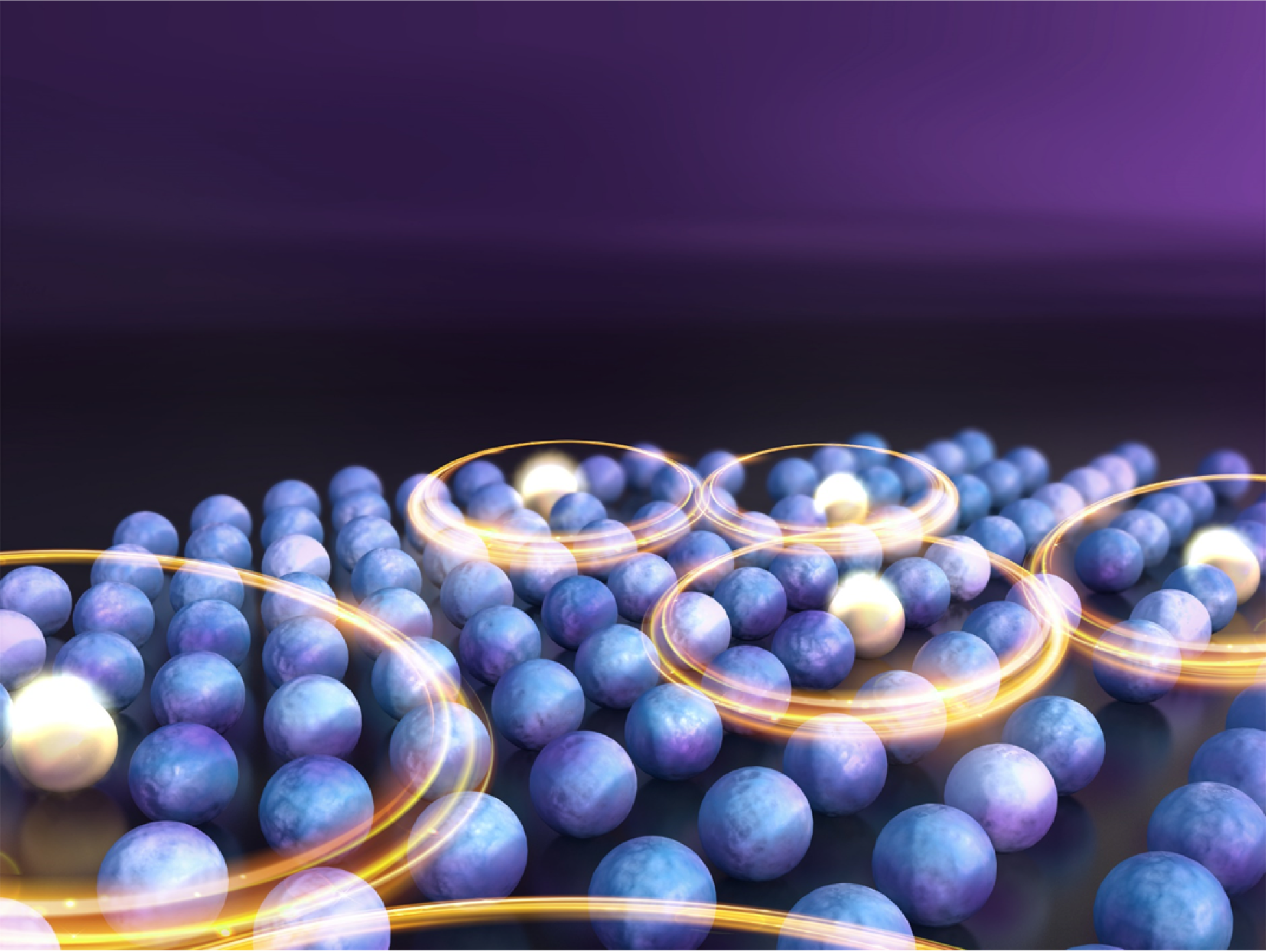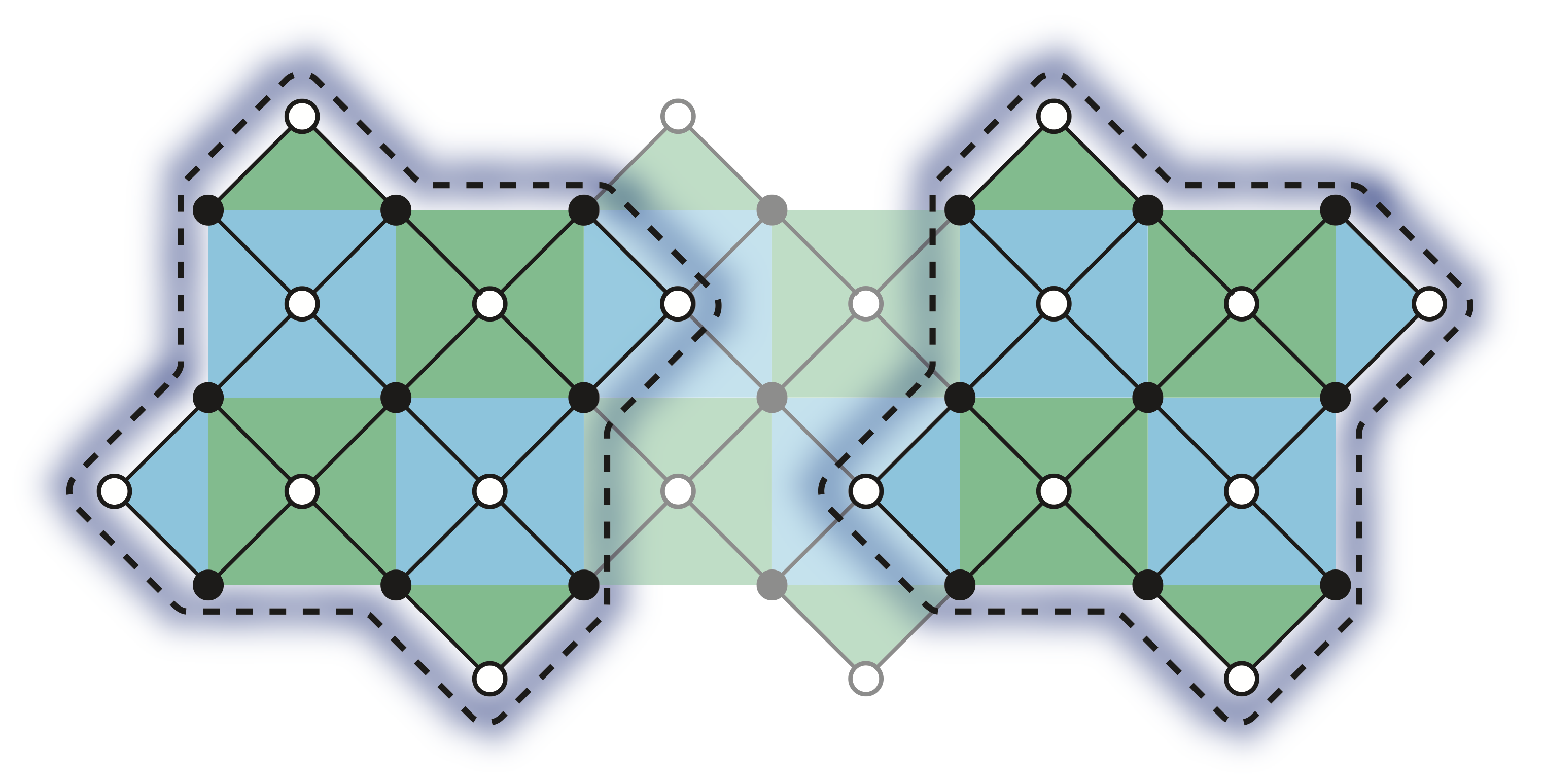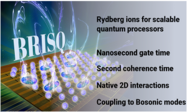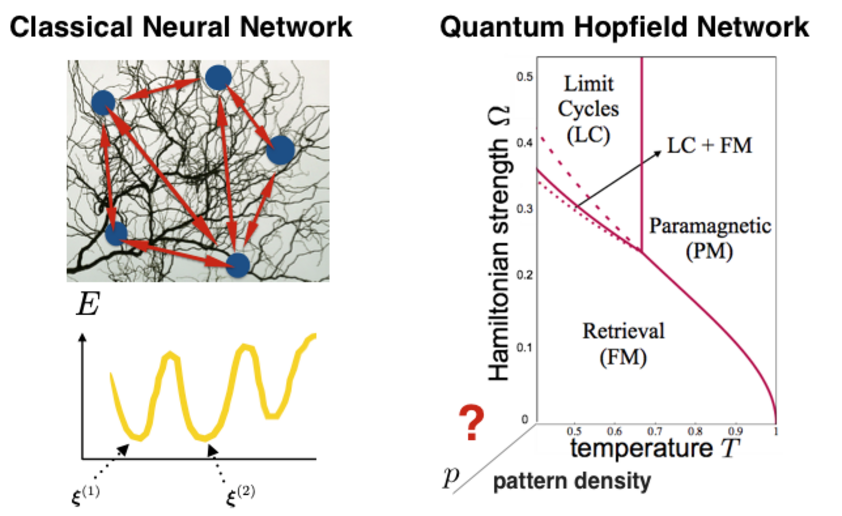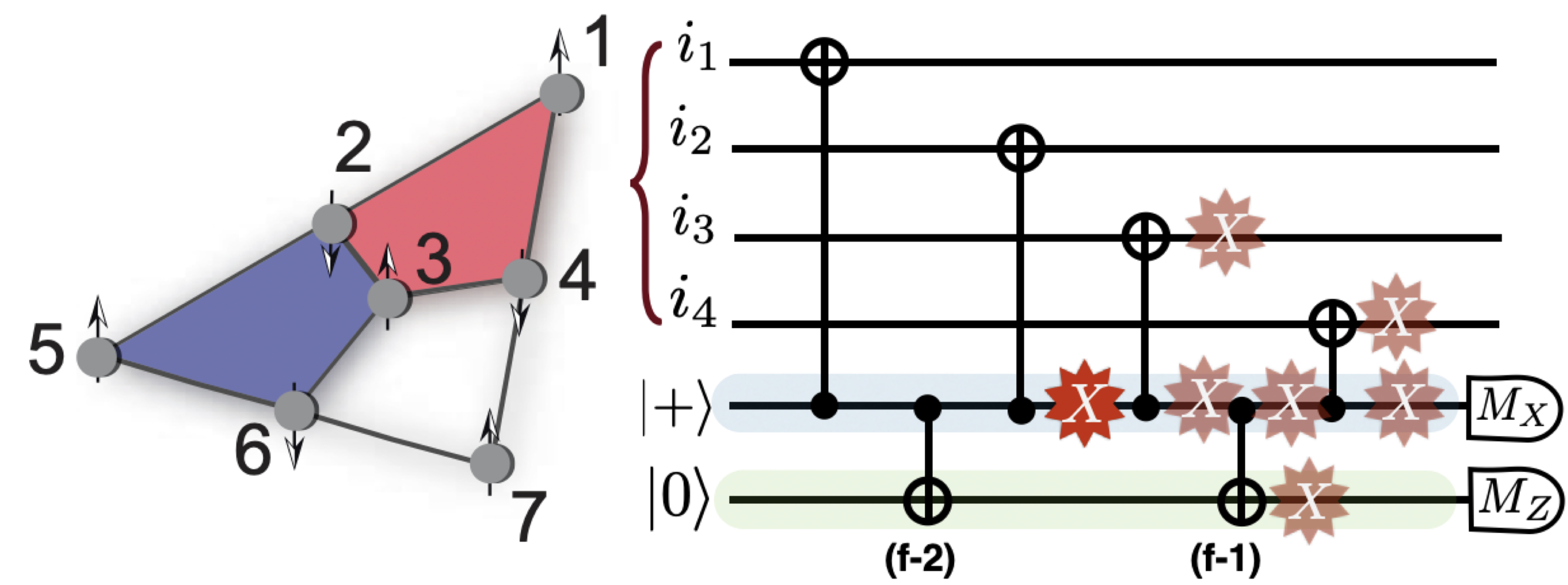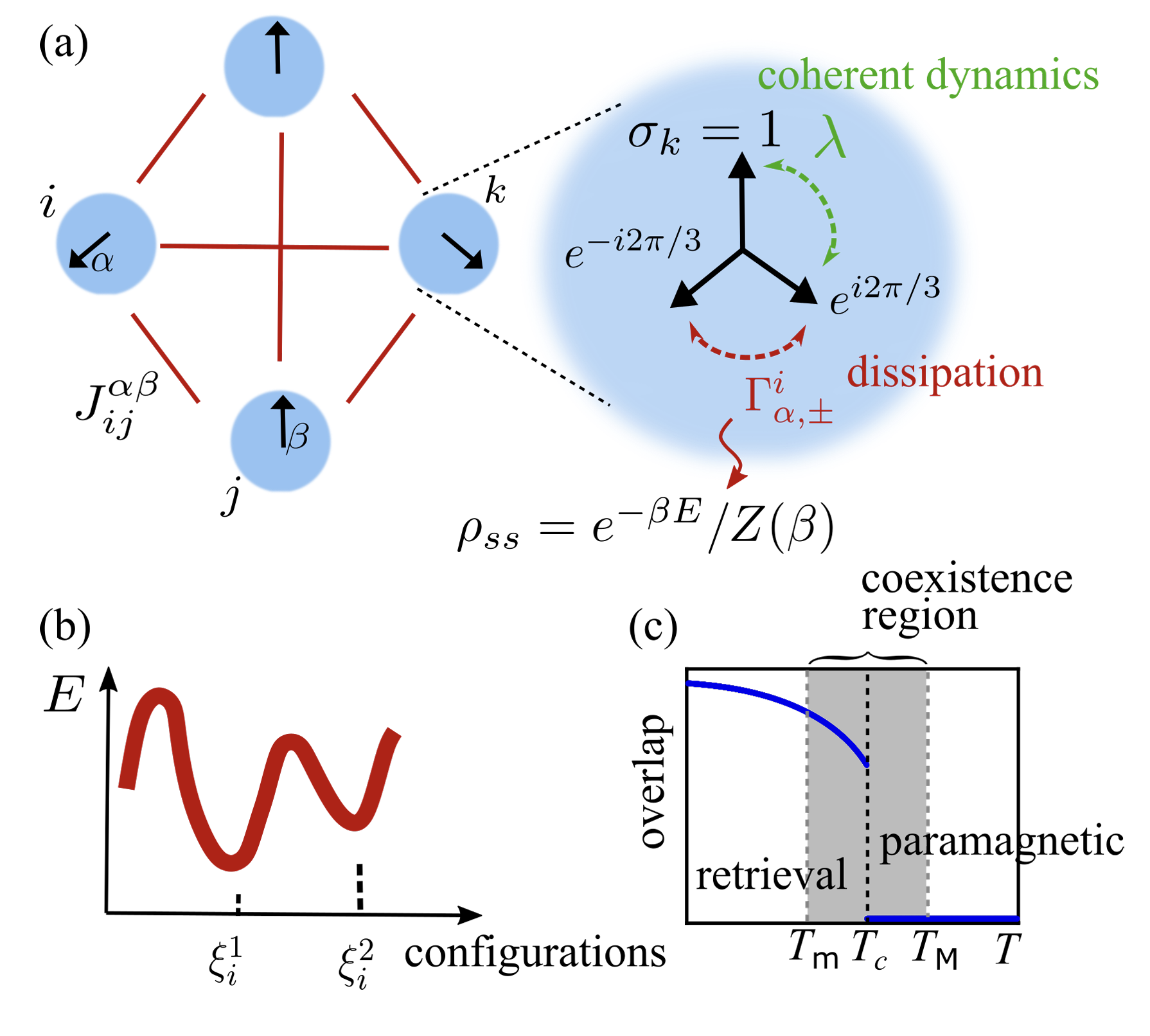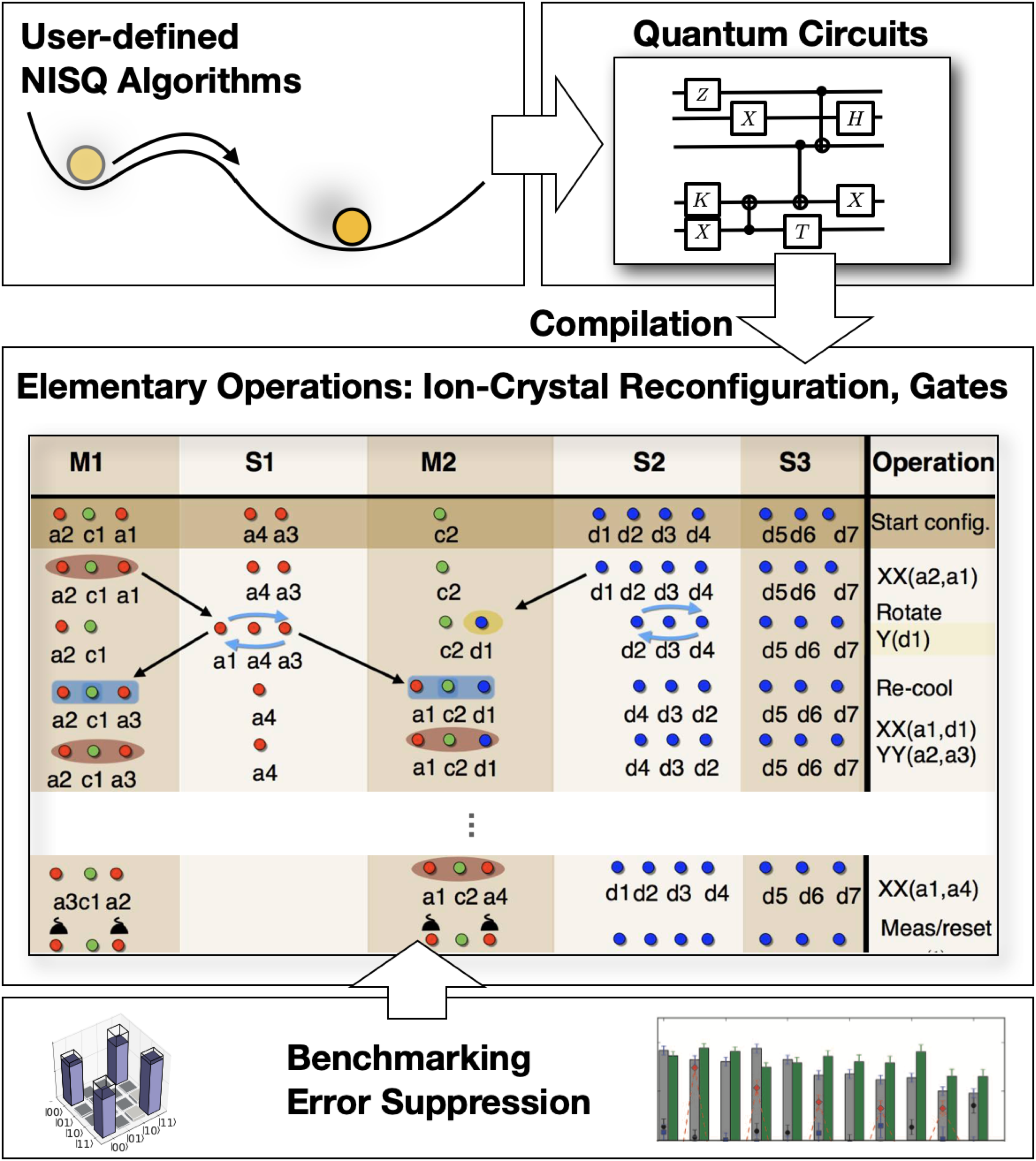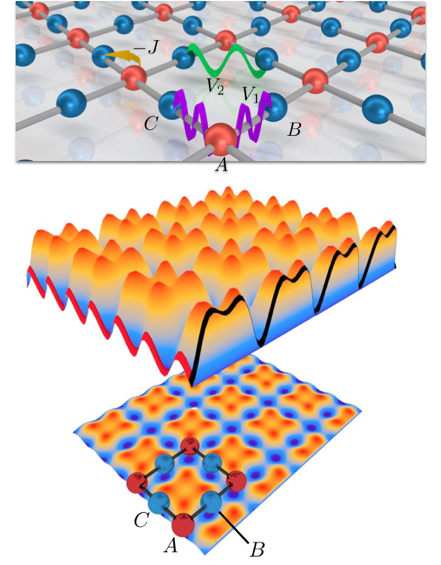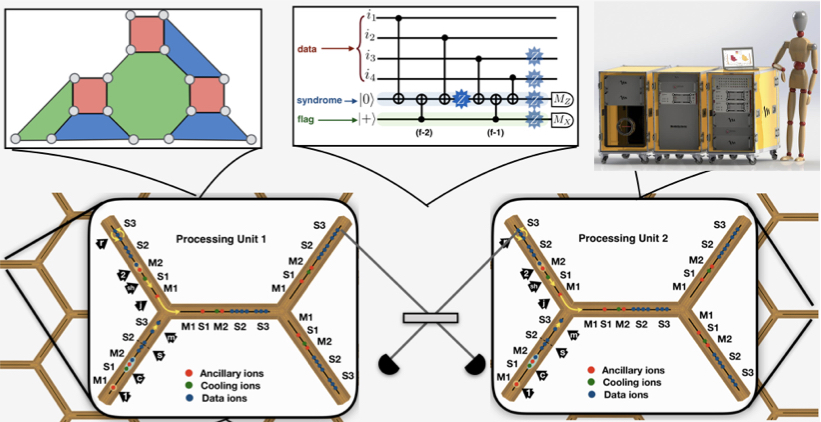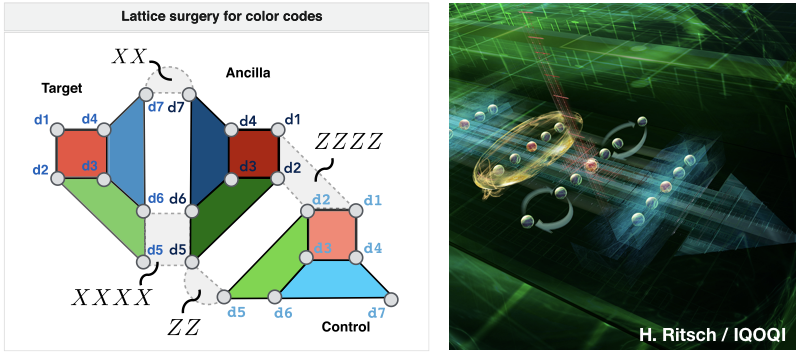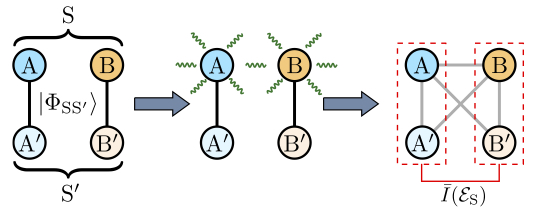-
MILLENION
From size to stability, from integration to networking: MILLENION will tackle the pressing challenges that quantum computers face on their path from the laboratory to industry scale. As successor to the EU flagship project AQTION, the MILLENION collaboration combines academic and industrial leaders across Europe to deliver a modular and scalable quantum computing suite with…
-
ELQ Modularis
Similar to the ELQ SuperMOOSE project, the ELQ Modularis project also aims to demonstrate entanglement between two error-corrected logical qubits. The main difference between the project is in the quantum computing platforms used. In the Modularis project, spear-headed by the group of Thomas Monz at UIBK, logical entanglement shall be demonstrated within an ion-trap quantum…
-
ELQ SuperMOOSE
The Entangled Logical Qubits (ELQ) program aims to advance the state of the science in universal fault-tolerant quantum computing by demonstrating high-fidelity entanglement between error-corrected logical qubits using a modular architecture. This is an essential step towards the realization of UFTQC and its potential to greatly outperform classical computing in solving certain classes of problems,…
-
BRISQ-Brisk Rydberg Ions for Scalable Quantum Processors
Trapped ions are one of the leading platforms for scalable quantum computing. Complementary, neutral atoms that are laser-excited to Rydberg states offer very strong and long-range interactions, which can be exploited for the realisation of fast quantum gate operations. Why not combining both approaches in a fruitful way? The new research collaboration BRISQ, starting in…
-
MUNIQC-Atoms and MQV: Scalable Quantum Error Correction in Neutral-Atom Quantum Processors
Neutral Rydberg atoms in optical lattices or optical tweezer arrays are a fascinating scalable physical platform to realise quantum information processing and explore strongly correlated many-body quantum physics. Here, atoms can be laser-excited to high-lying electronic so-called Rydberg states, in which they exhibit strong and long-range interactions. These can be then be used in a…
-
ERC Starting Grant Open Quantum Neural Networks: From Fundamental Concepts to Implementations with Atoms and Photons
Classical neural networks, originally inspired by the neural structure of the brain, have become a powerful and ubiquitous information processing paradigm in our every day’s life. Neural-network-based algorithms and software are used with impressive success for tasks as diverse as image and speech recognition, machine learning, the analysis of ‘big data’ and ‘deep learning’. Driven…
-
Verification and Certification of Quantum Fault-Tolerance (VEQTOR)
Current prototype quantum computers are limited in their computational power due to errors which impedes us from reliably executing longer quantum computations. The underlying problem is that errors proliferate in large-scale quantum computation and destroy any computational advantage if left to accumulate uncontrollably. Here, fault-tolerant quantum error correction promises to detect and correct errors efficiently…
-
Quantum generalisations and implementations of Hopfield and feed-forward neural networks
In this project, in collaboration with colleagues from the University of Tübingen, our goal is to develop quantum mechanical versions of neural networks. However, we do not intend to do this from a quantum software perspective or as an ansatz to describe complex many-body quantum states. Rather we seek to engineer neural network dynamics at the…
-
Ion quantum processor with HPC connection (IQuAn)
Scalable quantum processors open up new opportunities for research and development, comparable to the advent of integrated circuits in the past century. The aim of this joint project is the construction and operation of an elementary quantum processor unit based on trapped atomic ions, in collaboration with academic and industrial partners from the University of Mainz, Fraunhofer-Gesellschaft, TOPTICA and AKKA.…
-
Quantum Simulation of Complex and Topological Many-Body Systems
Simulating the general dynamics of interacting many-body systems can be a notoriously hard problem, even for the most powerful classical supercomputers. The idea of quantum simulators is to map the dynamics of complex, interacting many-particle quantum systems of interest onto other, controlled quantum devices, to study their properties and time evolution in a more accessible…
Completed Projects
-
EU Quantum Technology Flagship Grant (AQTION)
Advanced Quantum Computing with Trapped Ions Ion-trap quantum information processors are one of the leading platforms to realise scalable quantum computers. Here, quantum information is encoded in meta-stable electronic states of electromagnetically trapped ions, which can be manipulated with high precision using laser fields to implement single- and multi-qubit gate operations. The overall goal of…
-
Research Collaboration Encoded Qubit Alive (eQual)
Quantum processors are notoriously vulnerable to perturbations, with the resulting decoherence and noise preventing to date the construction of large-scale fault-tolerant quantum computers. Today, one of the most realistic and promising approaches to overcome this problem are topological quantum error correcting codes, where quantum information is stored in interacting 2D or 3D many-body quantum systems.…
-
Research Collaboration Certified Topological Quantum Computation (CETO)
Studying the fundamental physics of many-particle quantum systems, as well as the practical implementation of engineered quantum systems such as quantum computers and simulators, both require the ability to accurately characterise the underlying quantum states and processes. However, even for quantum systems of very moderate sizes of only a few qubits, the required resources (time,…

